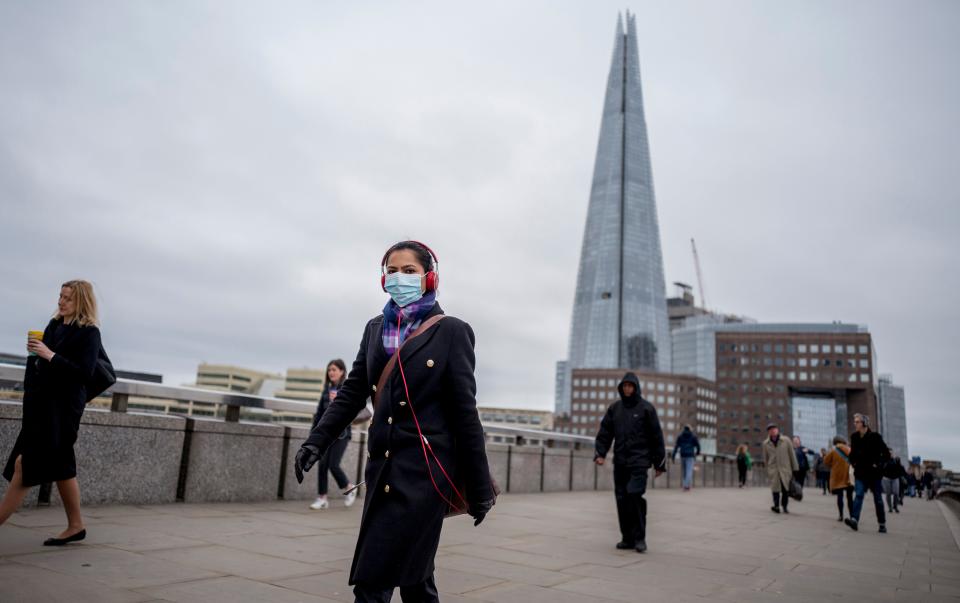UK economy shrank before full force of coronavirus crisis hit

The UK economy shrank by 0.1% in February, indicating that it was already in a weak position before the full force of the coronavirus crisis razed the country’s businesses.
While the contraction reflects the spillover effects of coronavirus-related slowdowns elsewhere, the new data relates to the month before March’s UK-wide lockdown, which is expected to push the UK into its worst recession in decades.
The Office for National Statistics (ONS) said on Thursday that the country’s economic output grew by just 0.1% in the three months to the end of February, suggesting that the economy almost flatlined.
The month-on-month GDP contraction of 0.1% in February alone was also lower than the 0.1% growth that had been expected by analysts, and raises questions about the fundamentals of the UK economy.
Output was also dented by severe weather in the month, which saw more than twice the average rainfall. Storms Ciara, Dennis, and Jorge flooded homes and businesses across the country.
Read more: Chancellor announces £750m in funding for charities
“February GDP confirmed that the expected post-election bounce in activity failed to materialise at the start of 2020,” analysts at Barclays said on Thursday.
“This raises questions regarding the rebound capacity of the economy once the lockdown measures are lifted,” they said.
Several business surveys and closely watched indicators suggest that, because of coronavirus, the country is now facing into an economic slump worse than the one seen after the 2008 financial crisis.
The weak growth in the country’s gross domestic product (GDP) in the three months to the end of February was up from 0% growth in the three months to the end of January.
“Today’s figures show that in the three months to February, which was before the full effects of coronavirus took hold, the economy continued to show little to no growth,” said Rob Kent-Smith of the ONS on Thursday.
“Most elements of the services sector grew, though manufacturing continued to decline. Construction saw a notable fall in February, as wet weather and flooding hampered housebuilding.”
Compared with January, growth in the services sector flatlined in February. A contraction in the construction sector, where output plummeted by 1.7%, was partially offset by 0.5% growth in the manufacturing sector.
Read more: £28bn of UK dividends cancelled due to coronavirus
Economic data from March will begin to reflect the scale of the crisis facing the UK economy.
The Department for Work and Pensions said earlier this month that nearly one million people applied for universal credit, the country’s primary social welfare payment, in the final two weeks of March.
Meanwhile, the hugely important services sector — which makes up around 45% of the country’s exports and includes finance, retail, law, engineering, and hospitality — saw the sharpest drop in activity on record in the same month, according to purchasing managers’ index (PMI) data.
Similar declines have been seen in the manufacturing and construction sectors, while analysts expect the coronavirus lockdown, which prompted the closure of non-essential businesses, to result in an unprecedented drop in consumer spending.

 Yahoo Finance
Yahoo Finance 
